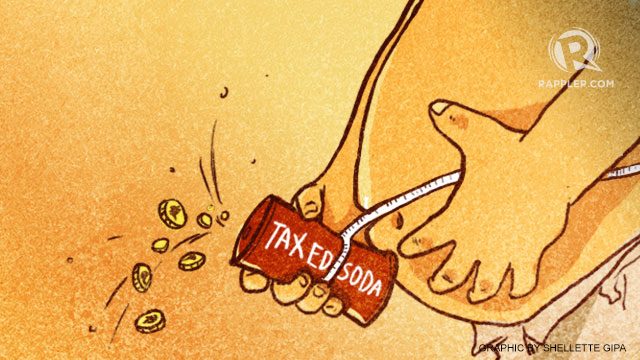SUMMARY
This is AI generated summarization, which may have errors. For context, always refer to the full article.

The Philippines is facing the double burden of growing overweight and obesity rates, with a serious problem of malnutrition. These are undoubtedly global problems – a major international study (2017) found that obesity has more than doubled since 1980, with over one in 10 people worldwide being obese. But we experience this in real, challenging ways in the Philippines.
In 2014, 23.6% of Filipino adults were overweight. In 2008, 57% of deaths in the Philippines resulted from the “fatal 4” NCDs – cardiovascular disease, cancer, diabetes, and chronic respiratory disease. This increased to 70% in 2013. Meanwhile, malnutrition has only decreased 8% in 15 years, with the chronic malnutrition rate at 33.4% in 2015.
In this context, it is absolutely critical that the government take strong measures to improve nutrition on both ends of the spectrum in our push for national reform. I am unsure if the current proposed solution – a P10-per-liter tax on sugar-sweetened beverages (SSBs) and P20 for beverages using imported sugar – will steer us towards that goal. Is public health the priority of the proposed tax? (READ: Sugar-sweetened beveage taxes promise P47B revenue – Suansing)
How will the tax improve health outcomes?
The tax intends to reduce consumption of SSBs by increasing their price. However, we must be wary of a potential “substitution effect” – would a tax simply make consumers switch to untaxed products, cancelling out any positive effects?
A report by the Economist Intelligence Unit (2017) points out the prevalence of street food that cannot be regulated. Here in the Philippines we are fond of food like sago’t gulaman, which are highly sweet and not subject to tax. With other factors surrounding sugar consumption, more local research is needed to determine if the tax will definitively lead to lower sugar intake.
The volume tax is a flat tax – it imposes an added cost of P10 on the price of any SSB (soft drinks, concentrates, coffee, etc). This means drinks with 5 grams and 50 grams of sugar will be taxed the same. To reduce the amount of sugar we consume, a tax based on sugar content is more intuitive. It ensures that drinks with the most sugar will be taxed the most, and is more likely to encourage consumers to switch to the cheaper drinks, with less sugar.

While the proposed tax targets obesity and overweight, it risks hurting those already susceptible to malnutrition. Prices may increase up to 108%, disproportionately affecting consumption in low-income households while also endangering sari-sari stores that constitute 36% of fast-moving consumer goods (FMCG) sales and earn a monthly average of P26,000 from products such as SSBs.
How will the tax revenue address nutrition and health?
Taxes may also contribute to improving health and nutrition outcomes through investment in health programs, education drives, and healthcare financing. The proposed SSB bill is expected to raise over P47 billion in revenue, with 15% allocated to supporting the sugar industry. Only 10% is intended for the Department of Health, and 15% to education. For an ambitious public health endeavour, this is a minimal contribution. We must keep health at the center of discussion.
What are our alternatives?
One clear alternative to a volume-based tax is one that is sugar-based, encouraging consumers to drink less sugar simply because it is cheaper. Beverage companies will also endeavor to reduce sugar content to pay less tax, making the industry a healthier one overall. Taxing sugar content also enables us to track health impact, as we can easily correlate health outcomes to consumers’ intake of sugar, since other sources of carbohydrates remain available.
This threshold model is one that has been favored in countries worldwide, with South Africa and the United Kingdom close to implementation. There are ongoing deliberations in Thailand. As we consider this tax, let us remain geared towards finding the best solution for the health of Filipinos.
How do we ensure that any health-oriented tax is effective?
To effectively address the double burden threat to public health, Philippine-focused studies on the wider Filipino diet and sugar intake are essential. In Singapore, health authorities have identified white rice as the main cause of diabetes in the country, rather than sugar. Understanding our problem will lead us to an effective solution.
Above all, any nutrition-oriented solution is incomplete without efforts for prevention and education. Awareness-raising programs such as “National Obesity Prevention and Awareness Week” should be leveraged to educate the public on the importance of a balanced diet and regular physical activity. Restricting the marketing of “unhealthy foods” to children and implementing food labeling for nutritional information may also mitigate incidence of NCDs.
As the Senate rules on the introduction of a volume-based tax, we should ask ourselves what health outcomes we want to achieve for our country and implement the most effective, efficient, and impactful policies. – Rappler.com
Dr Teodoro “Ted” Herbosa, MD is the Executive Vice President of the University of the Philippines and former undersecretary of the Department of Health. He is a dynamic advocate of health issues and a published writer in healthcare. As consultant of the WHO, he has assisted countries like Republic of Palau, Maldives, Tunisia, and Fiji to formulate development plans and assess national and health emergency plans. Dr Herbosa graduated from the UP College of Medicine and pursued further training in Tel Aviv, Israel.
Add a comment
How does this make you feel?
There are no comments yet. Add your comment to start the conversation.